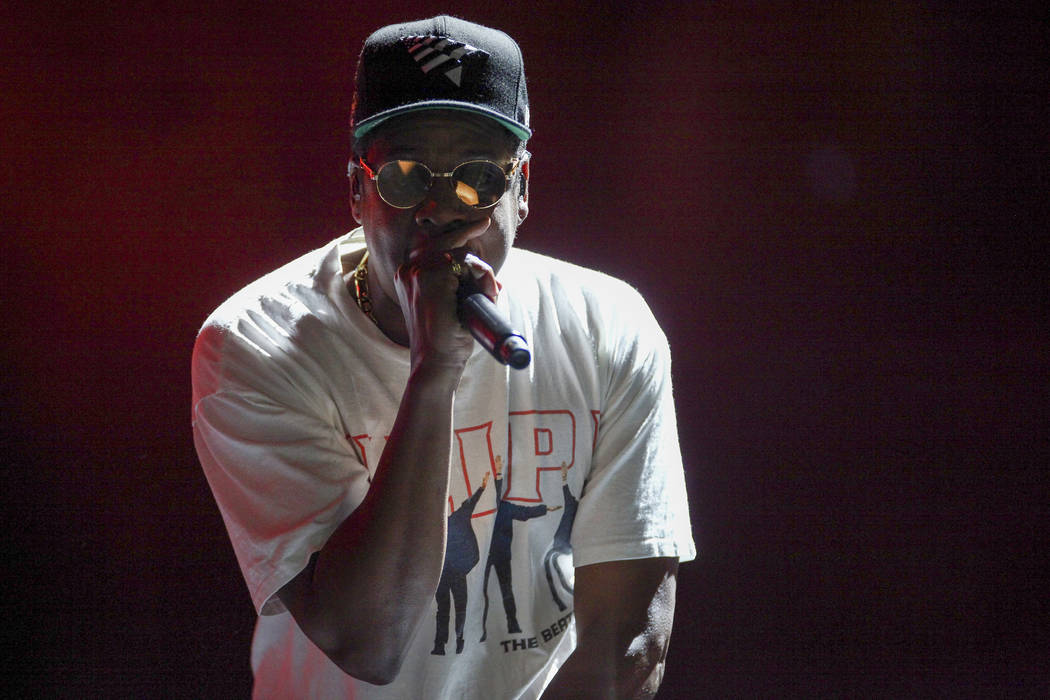The biggest takeaways from Jay Z’s candid ‘4:44’

When life gives you “Lemonade” … you drink it down and hope that it dislodges the humble pie wedged in your throat.
From tabloid newsprint to wax, Beyonce and Jay Z’s marital issues have been transformed from rumors to songs in the past year, first via the former’s aforementioned record, and now with the latter’s latest album/plea for forgiveness, “4:44.”
Jay Z’s revelations about his infidelity aren’t that revelatory at this point, but he unburdens himself in candid, humbling fashion nonetheless, sparing nothing here.
“Look, I apologize, often womanize / Took for my child to be born / See through a woman’s eyes,” he confesses on the album’s title track. “Took for these natural twins to believe in miracles / Took me too long for this song / I don’t deserve you.”
On the album’s lead cut, “Kill Jay Z,” he takes the blame for his much-publicized elevator confrontation with Beyonce’s sister, Solange Knowles, and name-drops Halle Berry’s ex, singer Eric Benet, who also cheated.
“You egged Solange on / Knowin’ all along, all you had to say you was wrong / You almost went Eric Benet / Let the baddest girl in the world get away.”
Earlier in the song, Jay Z reveals his motivations: “You can’t heal what you never reveal.”
This is how much of “4:44” unfolds: It’s the rapper’s most personal, cathartic record, an expression of real vulnerability in a genre where such displays are often equated, wrongly, with weakness.
Jay Z publicly acknowledging that he strayed from his marriage certainly ranks among the biggest takeaways from “4:44.”
Here are the others:
His relationship with Kanye West has gone south
Remember when Kanye West went all Kanye West, totally Kanye West-ing a show last November in Sacramento, California, where, in a lengthy onstage rant, he called out Hillary Clinton, Jay Z, Beyonce, the ghost of Nipsy Russell, the Wendy’s drive-thru guy, Alf, Dudley from “Diff’rent Strokes,” Tom Selleck’s mustache, etc.? (OK, so we lost track after those first three, but you get the drift.)
Well, Jay Z does.
The two have long had an up-and-down relationship, with West first making a name for himself via his production work on Jay Z’s career-best “The Blueprint” album in 2001.
But after West vented at the concert in question — he was allegedly angered that Jay Z never called him after his wife, Kim Kardashian, was robbed in Paris — Jay Z used “Caught Their Eyes” to hit back.
“Don’t big bro me, don’t ‘Big Homie,’ ” he thunders, referencing the West tune of the same name, which pays tribute to him. “I’ve seen pure admiration become rivals.”
Little has been heard from Kanye since that incident, as he canceled the rest of his tour and reportedly was hospitalized for a time.
So Jay Z now has the floor — and he’s wiping it with West.
He possesses a purple heart
They were bonded by business, not blood, but in hindsight, it seems as if the opposite were true.
Prior to his untimely death in 2016, Prince pulled all of his music off various streaming services in the summer of 2015 — all of them, save for Jay Z’s Tidal.
Clearly the relationship between these two went deeper than royalty rates, however, as evidenced by Jay Z taking on the Prince estate for how they managed his affairs. On the cutting “Caught Their Eyes,” he calls out former Prince adviser Londell McMillan by name, dropping the mic square on the latter’s reputation.
“I sat down with Prince, eye to eye / He told me his wishes before he died,” Jay Z rhymes. “Now, Londell McMillan, he must be color blind / They only see green from them purple eyes.”
Prince had a long history of battling record labels to maintain control over his art, which Jay Z references.
“This guy had ‘Slave’ on his face / You think he wanted the masters with his masters? / You greedy bastards sold tickets to walk through his house / I’m surprised you ain’t auction off the casket.”
Damn.
When Jay Z goes to bat for his friends, dude swings for the fences.
He’s unabashed about his mother’s sexuality
“Everyone in hip-hop discriminates against gay people.”
Kanye West announced as much in an interview with MTV News a decade ago.
Since then, little has changed: Gay epithets remain a routine — if impossibly tired — way of assailing one’s rivals.
And so when Jay Z directly addresses his mother’s sexuality and the toll it took on her on “Smile,” it ranks high among the most powerful, emotionally resonant moments of his career.
“Mama had four kids, but she’s a lesbian / Had to pretend so long that she’s a thespian,” he rhymes over a skittering beat. “Had to hide in the closet, so she medicate / Society shame and the pain was too much to take.”
The story then pivots from alienation to acceptance.
“Cried tears of joy when you fell in love / Don’t matter to me if it’s a him or her / I just wanna see you smile through all the hate / Marie Antoinette, baby, let ’em eat cake.”
The song concludes with a spoken-word outro from the woman in question, Gloria Carter herself.
“Living in the shadow. Can you imagine what kind of life it is to live?” she asks.
We can now.
Contact Jason Bracelin at jbracelin@reviewjournal.com or 702-383-0476. Follow @JasonBracelin on Twitter.